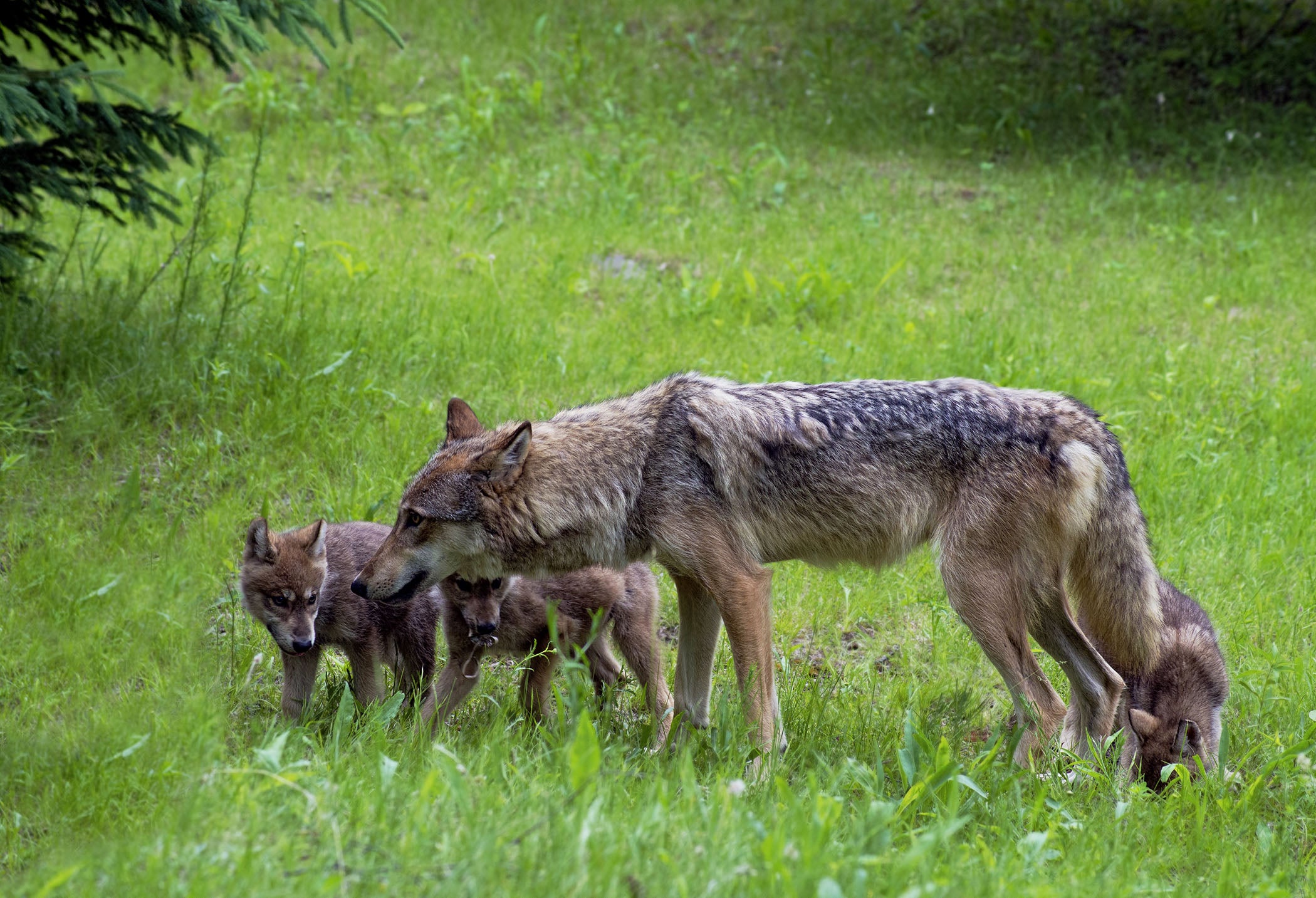STATE: Coyote sightings on the rise as pup season gears up
Published 2:05 pm Tuesday, May 9, 2023

- Coyote and Wolf Pups playing together in green field.
|
Getting your Trinity Audio player ready...
|
Biologists with the N.C. Wildlife Resources Commission say this month is when people are more likely to spot a coyote than any other time of year.
Coyotes are common throughout North Carolina, including in cities and suburbs, but often go unnoticed because they are skilled at avoiding people. In late spring, however, coyote parents are busy raising their young pups, which means more hours scouting for food and more opportunities for people to catch a glimpse of one.
While coyotes usually raise their young in secluded areas, keeping a litter of pups well-fed and healthy means covering plenty of ground to find enough food. Coyotes will roam a large area, crossing through neighborhoods and business districts, looking for an easy meal. Coyotes mostly eat rodents, rabbits, insects, fruit and carrion, but will also dine on pet food and table scraps left outside.
Seeing a coyote in a residential area shouldn’t cause alarm, as attacks on humans are very rare, and coyotes actually help to keep rodent populations in check. However, concerns for small pets, such as cats and small-breed dogs, may be valid as these animals can easily be mistaken for a coyote’s natural prey. For this reason, small pets should always be closely supervised when outdoors, or kept behind a dog-proof fence that is at least 6 feet tall and prevents digging underneath.
“Using a 6-foot leash is an excellent way to protect small pets when they’re outside,” advises Falyn Owens, extension biologist for the Wildlife Commission. “If you notice a coyote watching or following you during a walk, pick up your pet and haze the coyote until it leaves. Your physical presence can be a powerful deterrent for a curious coyote.”
In neighborhoods, residents can make the area less attractive to coyotes by removing easy food sources and actively scaring off any coyotes they see. Teaching a coyote to have a healthy fear of people is a great way to discourage unwanted behavior and foster coexistence.
Owens offers these tips to deter coyotes:
- Keep cats and small dogs on a leash or harness whenever they are outside. Backyard poultry should be kept in a predator-proof coop and run.
- Feed pets inside and keep food waste in secure containers. If you feed pets outside, set specific feeding times and remove the dishes and spilled food afterward.
- Keep fruit and bird seed off the ground. These foods can attract rodents and wildlife that prey on them.
- Haze coyotes seen around homes and businesses. Scaring coyotes away teaches them these areas are off limits and that people should be avoided.
Pup season brings an added factor to interacting with coyotes.
While a coyote will typically leave the area when confronted by a human, one that has vulnerable pups nearby is more likely to stand its ground. “This time of year, if you pass through a brushy or wooded area and notice a coyote watching you or following you at a distance, it could have a den nearby,” said Owens. “Calmly leave the area and notify others if you are near a public trail.” Coyotes use dens only as a nursery for newborn pups. As soon as the pups can survive outside of the den, the coyotes will abandon it and move on.
If you have questions about interactions with coyotes, visit www.ncwildlife.org/coyote or contact the NC Wildlife Helpline, Monday through Friday, 8 a.m. – 5 p.m., at 866-318-2401 or email HWI@ncwildlife.org.



